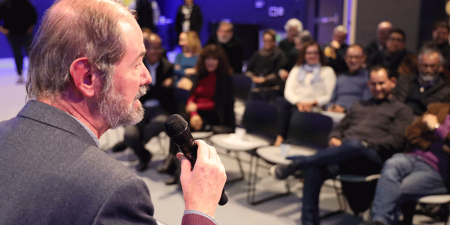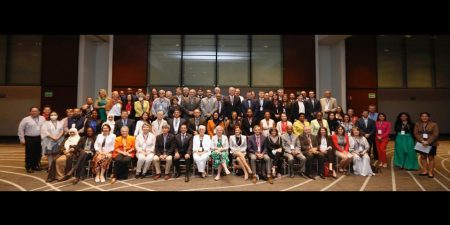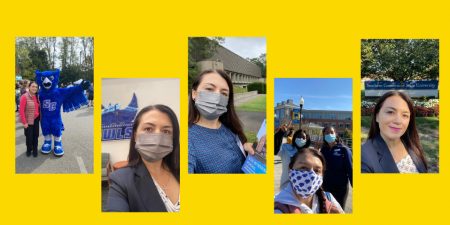2020 has brought with it a health alert of still incalculable scope and implications, resulting in persistent uncertainty in diverse areas of human endeavor. In particular, today, the educational setting comprises the epicenter of questions that seem to have no straightforward or unequivocal answer.
A question that is relevant to the educational sphere revolves around the assessment of on-line learning in the Learn at Home program, which has been implemented for half a year in Mexico, mediated by technological tools.
According to Ph.D. Karla Díaz López, Coordinator of the Master’s and Doctorate in Education programs at CETYS University International Campus in Ensenada, it is important to specify that online education is one that is carried out outside of school facilities, using various resources that decrease the possibility of gestural, corporal, or verbal communication, or of conducting synchronous learning between teachers and students.
Ph.D. Díaz López, who is also an expert in Educational Sciences, refers that online education is considered the best option to expand educational coverage in Ibero-America and that so far in this modality, particular emphasis is placed on the relevance of content, instructional design, to graphic rather than didactic issues, and the optimal use of technological resources. However, careful consideration regarding what and how to evaluate the learning achieved has been set aside.
«It is worth mentioning that the assessment includes the common thread of learning. Therefore, it must be based on different instruments or media that allow the evaluation of progress for each student in the different levels through which they progress.”
Online education as a learning modality in times of pandemic
The Secretary of Public Education (SEP) plans to implement testing to diagnose the progress and achievement of knowledge acquired by students during the execution of the program called Learn at home, which will be carried out once the health restrictions are lifted.
In this regard, Ph.D. Díaz López maintains that an assertive evaluation for and in online education as a learning modality in times of pandemic is required to consider at least three issues: identifying the conditions, means, and resources that students have, rethink learning objectives, and establish criteria for making decisions based on the results.
Some principles and conditions of learning assessment in online education, according to Ph.D. Karla Díaz, are the following:
- Aligned with the aims and objectives of the subject, the content, and the teaching-learning activities.
- Consider the knowledge, skills, and attitudes that should be evaluated.
- The instruments used must faithfully reflect the level of achievement reached by students. These include the objective test, interleaved questions, adaptive tests, essay tests, project, questioning, checklist, scales, rubric, portfolio, and concept map.
- Learning activities are reliable means of evaluation.
- Feedback, either automatically or through the tutor or advisor, has to be timely, clear, and according to each situation.
- Formative assessment is substantive for online learning.
Finally, CETYS’ expert recommends that professors consider the following evaluation modalities:
- Self-assessment and peer evaluation
- Team and collaborative evaluation tasks
- Online dialogue and debate through forums
- Simulation and performance of roles
- Problem solving
- Individual interviews
- Albums and portfolios
“It is important to emphasize that, especially in online education, teachers act as permanent evaluators of the learning of their students. The formative assessment throughout the entire course or period is one of the teaching activities. The weight that evaluation has in training forces us to plan and execute our subjects conscientiously and to use common sense, as well as to analyze our work. Each evaluation entails immediate feedback, through which the inclusion of remedial and strengthening activities is made possible”, concluded Ph.D. Karla Díaz.









Leave your comment